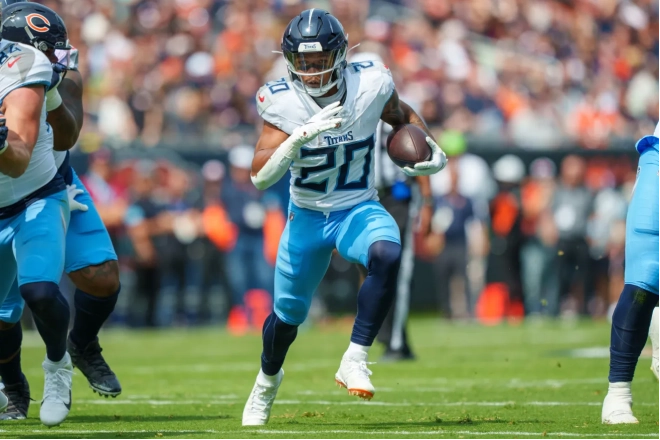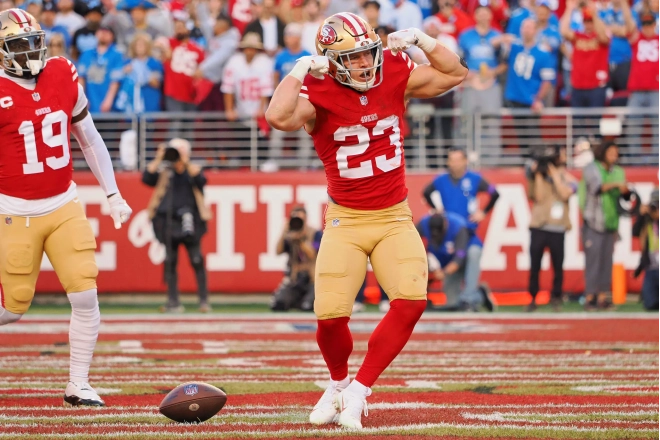Should I make this trade? It’s the fundamental question that has been frustrating fantasy owners since the dawn of time and due to the complex variables (league size, scoring, and roster construction) that accompany each trade proposal, it’s an impossible question to answer at times. You’ve seen it on Twitter, the accounts of prominent industry analysts are flooded with 140-character “is this a fair trade” questions, which you would be lucky to get a response at all, much less a well-thought out one which takes into account all of the complexities of your league and situation.
Thanks to Advanced Sports Logic’s revolutionary “Trade Judge” those days of uncertainty and relying on the Who Wants To Be A Millionaire game show style “ask the audience” feature on Twitter are over. Trade Judge is an invaluable feature for fantasy owners, and it’s something that I’ve used personally on a number of occasions to evaluate potential deals this season. Basically, Trade Judge enables you to plug in the potential deal and it then goes to work, using an algorithm to compare the players projected future performance, according to the projections at three sites (Pro Football Focus, FantasySharks and Fantasy Football Metrics), to determine whether or not the trade will benefit your team. It takes the guesswork out of trading, which is important because not every transaction is easy to evaluate. How do you determine the value of an injured player like Dez Bryant or just how much a surprise stud like Devonta Freeman or Dion Lewis is worth compared to established veterans like Le’Veon Bell or Matt Forte? This is where Advanced Sports Logic’s “Trade Judge” is worth it’s weight in gold.
It’s fair to disagree with the projections or the verdict handed down by Trade Judge, but what it offers is a starting point to evaluate a complex trade and whether or not it’s in the best interest of your team. I’ve talked a lot about the evaluation process once a deal has been proposed, but let’s take a step back and focus on a key element of trade strategy that fantasy owners should keep in mind as they dip their feet into the trade market over the next few days and weeks.
“Buying low” and “selling high” are outdated mantras that just don’t work anymore for the average fantasy league. Let’s face the reality here for a second. Due to the widespread availability of information and strategy articles, there isn’t a player slipping through the cracks that nobody knows about and the rest of your league isn’t clueless. A decade ago, it was fair to assume that you could gain an edge over the rest of your league by knowing more about the available player pool, but those days are over now that even the guy who doesn’t pay attention can whip out his smartphone, enter a player into Google (or Bing), and learn everything they need to know within thirty seconds. Trading is the one are where you can gain a significant edge if you know what you’re doing and the best way to do that is to think outside of the box.
One of the first things you notice about the Trade Judge feature is that it doesn’t care what a player has done so far. It does to some degree, because it’s factored into the projections, but overall it only puts weight on what a player can be reasonably projected to produce going forward. If you want to win, you need to put aside the sentimental attachment you may have to someone like Steve Smith, who helped you to a win with a monster game a few weeks ago, and be willing to move anyone at anytime if the price is right. Another key strategic element to be aware of at this juncture of the season is to not sit around if you’re team is metaphorically on fire (in a bad way, just to clarify).
The blanket statement that accompanies any early season trade strategy column is to “not panic” if your studs are off to slow starts and not to “overreact” to small sample sizes. All fair and logical points, but if you’ve ever heard of the phrase “sunk cost” you’re aware that sometimes the best strategy is to simply admit that a player isn’t going to live up to the level of performance you expected when you drafted them and that its time to move on as quickly as possible, instead of holding out hope that they will turn it around.
A few prominent examples of potential sunk costs in terms of where their value was just a month ago compared to today would be: Andrew Luck, Sam Bradford, DeMarco Murray, LeSean McCoy, Marshawn Lynch, Lamar Miller, C.J. Anderson, Brandin Cooks, Sammy Watkins and Davante Adams, just to name a few. To be clear, I’m not saying that these players have no value or that there is zero prospect of them rebounding over the remainder of the season, but it’s likely that if you made a significant investment to acquire them on draft day, it hasn’t worked out so far and it’s time to explore trading them for an asset that can help your team going forward, if possible.
Where you can really get into trouble and risk falling out of contention is if you do nothing. Using the Trade Judge feature, I ran a few potential deals through using someone like Murray (a popular fantasy focus for owners) to find an example of a deal in which you could sell him for an assortment of players that might improve your roster overall. The one I came up with that I liked the most was Murray for Danny Woodhead, Stevie Johnson and James Jones. Trade Judge determined that the owner receiving Murray would benefit more according to the projections at FantasySharks and Pro Football Focus, but Fantasy Football Metrics liked the deal in favor of the team receiving quantity over quality.
As painful as it may be to sell Murray for so little a month after burning a first or second round pick on him, it’s reasonable to expect that he will improve over the remainder of the season (which should help you sell him) and while you may not be able to get a stud in return, you will be able to add some depth and potentially improve at several spots if you get lucky. At the end of the day, it’s your roster, but I know for me personally, if I feel like my roster isn’t good enough to win a title right now, I’m willing to make a risky deal because you have almost nothing to lose.
For the best fantasy updates, fantasy news, and sporting news, keep reading ASL!




